
An autobiography, sometimes informally called an autobio, is a self-written biography of one's own life.

Laurence Sterne was an Anglo-Irish novelist and Anglican cleric who wrote the novels The Life and Opinions of Tristram Shandy, Gentleman and A Sentimental Journey Through France and Italy, published sermons and memoirs, and indulged in local politics. He grew up in a military family, travelling mainly in Ireland but briefly in England. An uncle paid for Sterne to attend Hipperholme Grammar School in the West Riding of Yorkshire, as Sterne's father was ordered to Jamaica, where he died of malaria some years later. He attended Jesus College, Cambridge on a sizarship, gaining bachelor's and master's degrees. While Vicar of Sutton-on-the-Forest, Yorkshire, he married Elizabeth Lumley in 1741. His ecclesiastical satire A Political Romance infuriated the church and was burnt.

Uncle Tom's Cabin; or, Life Among the Lowly is an anti-slavery novel by American author Harriet Beecher Stowe. Published in two volumes in 1852, the novel had a profound effect on attitudes toward African Americans and slavery in the U.S., and is said to have "helped lay the groundwork for the [American] Civil War".

John Boynton Priestley was an English novelist, playwright, screenwriter, broadcaster and social commentator.
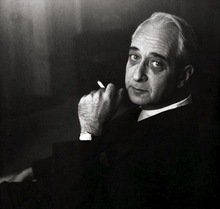
Lionel Mordecai Trilling was an American literary critic, short story writer, essayist, and teacher. He was one of the leading U.S. critics of the 20th century who analyzed the contemporary cultural, social, and political implications of literature. With his wife Diana Trilling, whom he married in 1929, he was a member of the New York Intellectuals and contributor to the Partisan Review.

Slow River is a science fiction novel by British writer Nicola Griffith, first published in 1995. It won the Nebula Award for Best Novel and the Lambda Literary Award. The novel received critical praise for its writing and setting, while its use of multiple narrative modes was criticised.
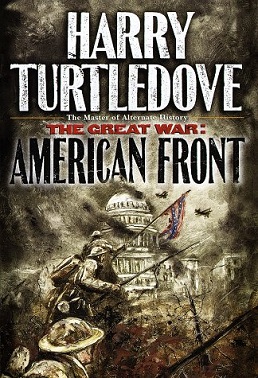
The Great War: American Front is the first alternate history novel in the Great War trilogy by Harry Turtledove. It is the second part of Turtledove's Southern Victory series of novels. It takes the Southern Victory Series from 1914 to 1915.

Caryl Phillips is a Kittitian-British novelist, playwright and essayist. Best known for his novels, Phillips is often described as a Black Atlantic writer, since much of his fictional output is defined by its interest in, and searching exploration of, the experiences of peoples of the African diaspora in England, the Caribbean and the United States. As well as writing, Phillips has worked as an academic at numerous institutions including Amherst College, Barnard College, and Yale University, where he has held the position of Professor of English since 2005.

Laila Lalami is a Moroccan-American novelist, essayist, and professor. After earning her licence ès lettres degree in Morocco, she received a fellowship to study in the United Kingdom (UK), where she earned an MA in linguistics.
Mark Winegardner is an American writer born and raised in Bryan, Ohio. His novels include The Godfather Returns, Crooked River Burning, and The Veracruz Blues. He published a collection of short stories, That's True of Everybody, in 2002. His newest novel, The Godfather's Revenge, was published in November 2006 by Putnam. His Godfather novels continue the story of the Corleone family depicted in Mario Puzo's The Godfather.
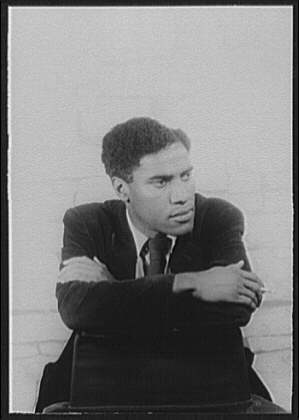
George William Lamming OCC was a Barbadian novelist, essayist, and poet. He first won critical acclaim for In the Castle of My Skin, his 1953 debut novel. He also held academic posts, including as a distinguished visiting professor at Duke University and a visiting professor in the Africana Studies Department of Brown University, and lectured extensively worldwide.
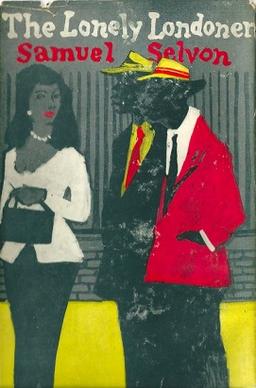
The Lonely Londoners is a 1956 novel by Trinidadian author Samuel Selvon. Its publication was one of the first to focus on poor, working-class black people following the enactment of the British Nationality Act 1948 alongside George Lamming's (1954) novel The Emigrants. The Lonely Londoners was included on the "Big Jubilee Read" list of 70 books selected by a panel of experts, and announced in April 2022 by the BBC and The Reading Agency, to celebrate Queen Elizabeth II's platinum jubilee in June 2022.
Maureen Theresa Howard was an American novelist, memoirist, and editor. Her award-winning novels feature women protagonists and are known for formal innovation and a focus on the Irish-American experience.

The Polished Hoe is a novel by Barbadian writer Austin Clarke, published by Thomas Allen Publishers in 2002. It was the winner of the 2002 Scotiabank Giller Prize and the 2003 Commonwealth Writers' Prize for Canada and the Caribbean region and 2003 Trillium Book Award.
Ashley Little is a Canadian author of both adult and young adult literature.

In the Castle of My Skin is the first and much acclaimed novel by Barbadian writer George Lamming, originally published in 1953 by Michael Joseph in London, and subsequently published in New York City by McGraw-Hill. The novel won a Somerset Maugham Award and was championed by eminent figures Jean-Paul Sartre and Richard Wright, the latter writing an introduction to the book's U.S. edition.
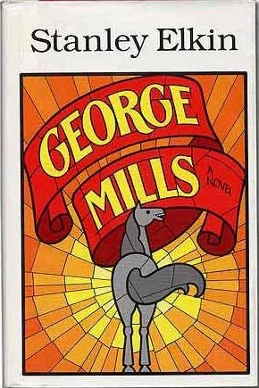
George Mills is a 1982 novel by American author Stanley Elkin, published by E. P. Dutton. The novel, set in five parts, tells the family history of succeeding generations of characters named George Mills. The story covers more than 1,000 years from the First Crusade in Europe to the Ottoman Empire to present-day America. Elkin won the 1982 National Book Critics Circle Award in the fiction category for the novel. Elkin mentioned George Mills as one of his favorite novels. The novel is considered Elkin's "longest and most complexly organized work".
Peggy Louise Goodin was a best-selling American novelist and three-time Hopwood Award winner. Two of her novels were adapted into films.
John Richard Alden was an American historian and author of a number of books on the era of the American Revolutionary War.

The Plumb trilogy is a series of three novels written by New Zealand author Maurice Gee: Plumb (1978), Meg (1981), and Sole Survivor (1983). The trilogy follows the lives of a New Zealand family across three generations, exploring the impacts of history, politics and religion on the family, and has been described by New Zealand writers and literary critics as one of the greatest achievements in New Zealand literature.














